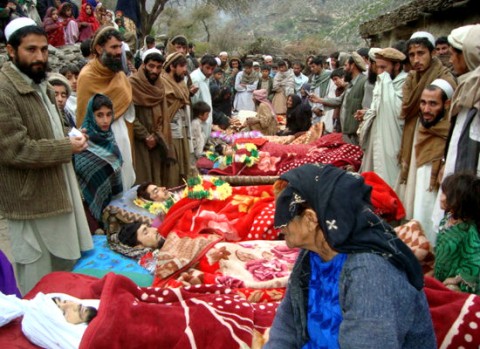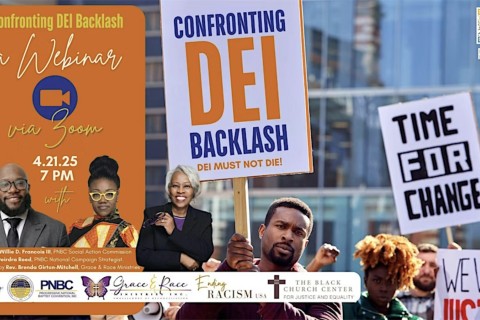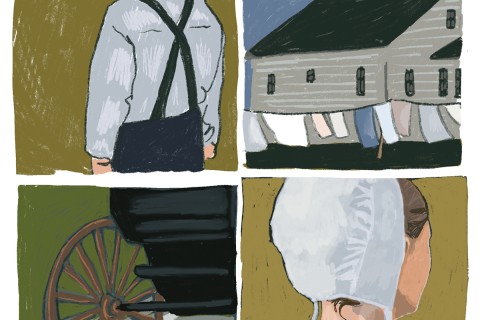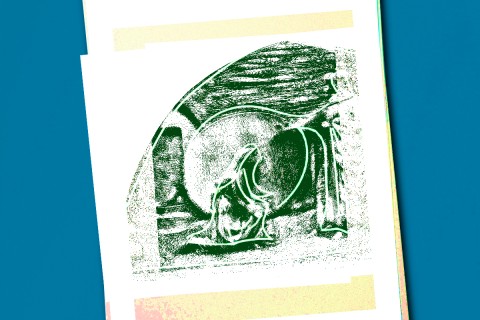Prayer concern: Remembering all the victims of war

In the church I attend, populated largely by people who might describe themselves as left-leaning and politically aware, the prayers have for months included a prayer for the families of American soldiers who died that week. The names of the soldiers are read with appropriate, sometimes moving, solemnity. Inevitably those names trigger empathetic thoughts: "David—that's my brother's name." "I wonder if Kathryn's parents called her Katie." "William has the same last name as my college roommate."
As the names are read I try to imagine each of them and their sorrowing families, holding them in that moment of spoken prayer as brothers and sisters whose sufferings touch us all.
But I have wrestled with those prayers. Some Sundays I have found it hard to maintain an attitude of prayer. I am bothered by the way the singling out of our war dead seems to valorize a military project I believe to be unwarranted, excessively costly and riddled with profiteering covered by propaganda that keeps us paying for it. I do think that most of those who died in these wars, however righteous their intentions and courageous their actions, died in vain—a thought that laces my sorrow with bitterness.
Moreover, I have found myself increasingly troubled by the fact that those prayers for the men and women who serve in the U.S. military did not include the family of the unarmed Afghan child who was shot in cold blood when he approached American soldiers. Or the nine-year-old Iraqi boy who was killed in his garden trying escape a raid on his house. Or those who died fighting American troops: surely even if they are our "enemies," the command that we love them must extend to mourning their deaths and their families' losses.
I finally asked one of the liturgists whether we might include some mention of those whom Americans had killed that week. It was, of course, a blunt way of putting the request; distress had driven me to impatience. I somewhat gratified when the next week (and thereafter) the prayers for the families of soldiers were followed by a prayer for comfort for "all who are victims of violence in war zones."
The circle of concern could, of course, go on expanding to the point of vitiating the energy and imagination one hopes to bring to prayer. Why not, after all, pray as well for all who are suffering from domestic abuse? Or from grueling poverty or joblessness? Or starvation due to political gridlock? Why not name all the forms of suffering and loss flesh is heir to or that greed and lust for power create?
Because, of course, there is not world enough and time. And because we do, perhaps rightly, tend to mourn our own dead first, however we define "us." But not to acknowledge our shared culpability as citizens of a nation that has done violence to the defenseless by policies and trade agreements as well as by missiles and M-16s is to participate in the hypocrisies that perpetuate that violence. They, too, are ours to mourn.
Those who mourn are blessed, Jesus mysteriously proclaimed. He may simply have been stating a fact. But this Beatitude may also be an invitation to deepen our understanding of how mourning may bless us—perhaps because it takes imagination and a very open heart to enter into others' sorrow, to mourn truly and generously not only those whose absence puts a sword through our hearts every waking day but those who lie in unmarked graves, whose names we don't know. Mourning, like any other good thing, can be contaminated by self-concern. Hopkins's poem that begins with the question "Margaret, are you grieving . . .?" ends with the edgy observation, "It is Margaret you mourn for"—not an accusation, but a recognition that our mourning brings with it renewed awareness of our own mortality.
One way to mourn authentically the dead whom we may have come to regard as enemies or aliens or anonymous others is to connect the dots that trace a path between us and them—the policies, the expropriation of resources, the forms of protectionism and attitudes of American exceptionalism that need to be renounced in order to recognize that the earth was their home as it is ours.
Last September, during a presentation on the causes, unanswered questions, and highly orchestrated aftermath of 9/11, a speaker at the Toronto Hearings showed a picture of a blood-spattered five-year-old Iraqi child standing in the middle of a room, wailing over the body of her father who had been shot by Americans. In fact, her whole family had been gunned down in front of her. Whether such pictures should be in the news is a matter of legitimate controversy; Susan Sontag thoughtfully raised the question in Regarding the Pain of Others whether images of others' suffering may not too often numb and distance us rather than awaken empathy—especially if they are mass-produced for casual perusal over morning coffee. Still, we seem to need help imagining the sufferings we help cause.
I say "we" not because most of us would willingly or explicitly consent to such indiscriminate violence if we had to make a personal, close-range decision about whether to engage in it, but because most of us implicitly consent to its being done in our name. Living in a nation that wields more power than any other ever has obliges us, I think, to learn to mourn more widely and complexly, if our mourning is to be "blessed." Our laments for our own losses need to be accompanied by confession of our complicities in others'. Our sorrow needs to be deepened by allowing ourselves to experience appropriate horror at the atrocities we countenance. Only when we grieve for those we have killed as well as for those we love who have been killed will we be able to enter into the mourning that links us to all humans who live with the aching agony of loss.
I don't know to what degree such mourning is even psychologically possible. Certainly my own is mired in a messy mix of sorrow, shame and frustration at Americans' lack of political will to stop the killing. But I want to learn, among those with whom I pray, how to mourn in a way that may be blessed. The courage to do that may open our hearts in a way that enables us to be comforted.





